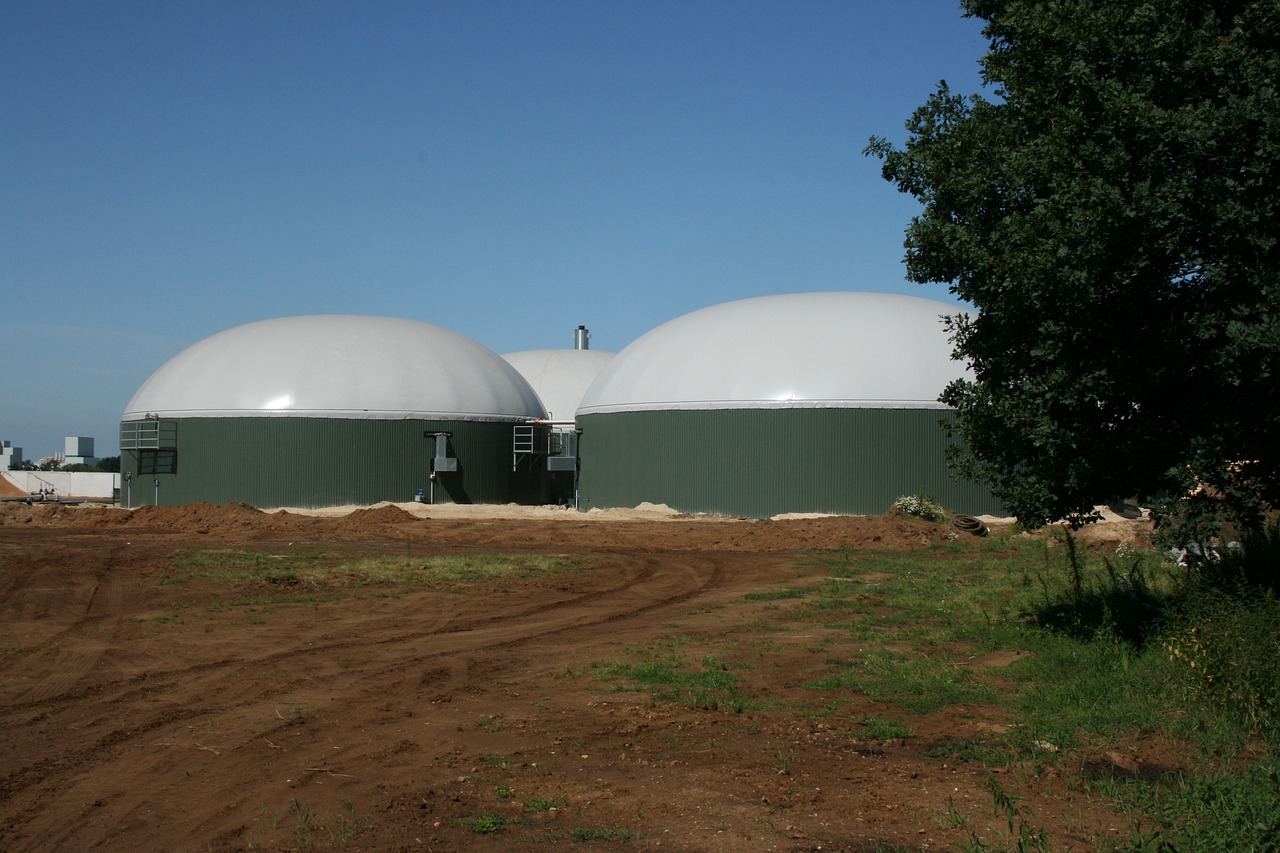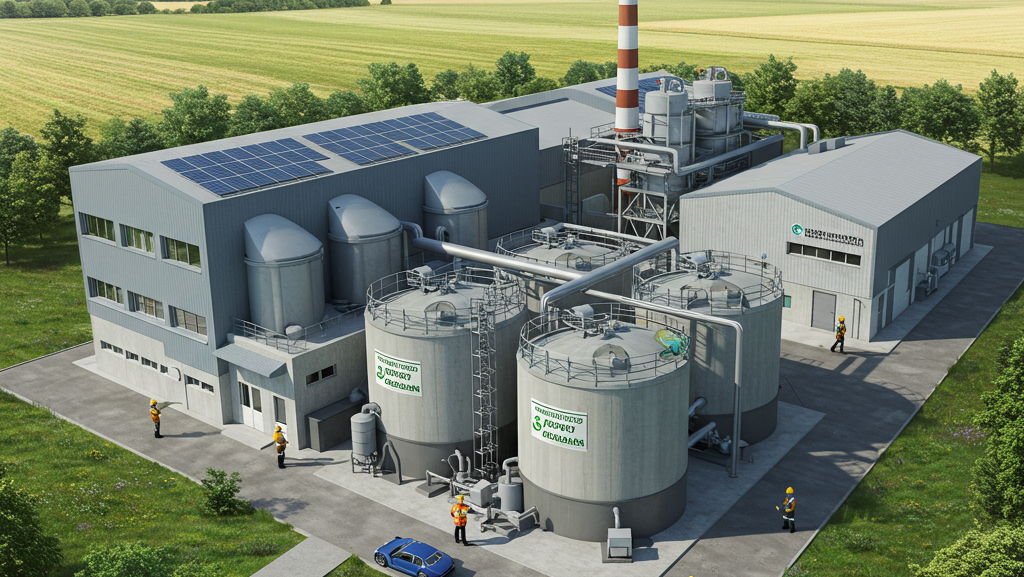Introduction to Mupundu Energy Ltd
Mupundu Energy Ltd is a pioneering enterprise established with the primary aim of addressing the energy crisis in Zambia through innovative solutions rooted in sustainability. Founded in the context of a nation reliant on traditional energy sources, Mupundu Energy was conceived as a response to the urgent need for renewable energy alternatives. The company integrates advanced technologies with local resources, ensuring that its initiatives not only provide energy but also foster community development and agricultural sustainability.
The vision of Mupundu Energy extends beyond simply generating power; it aspires to create a balanced ecosystem where energy production aligns seamlessly with agricultural practices. By harnessing biomass and other renewable resources, Mupundu Energy aims to transform waste into valuable energy solutions. This unique approach not only mitigates the adverse effects of waste disposal but also contributes positively to the local economy by providing energy security and opportunities for sustainable farming practices.
Central to Mupundu Energy’s mission is the commitment to empower local communities through education and capacity-building initiatives. Training programs are designed to equip local farmers and entrepreneurs with the necessary skills to engage in renewable energy practices while simultaneously enhancing agricultural productivity. This symbiotic relationship between energy generation and agriculture is pivotal to the company’s strategy, positioning it as a leader in Zambia’s transition towards a more sustainable future.
As Mupundu Energy continues to develop and expand its innovative projects, it remains focused on creating a model that other companies may replicate. By prioritizing renewable energy initiatives and community well-being, Mupundu Energy is not only addressing the immediate energy needs of Zambia but also laying the groundwork for a resilient and sustainable agricultural sector.
Harnessing Agricultural and Livestock Waste
Mupundu Energy’s innovative approach to energy production emphasizes the conversion of agricultural and livestock waste into renewable energy, addressing both energy needs and environmental sustainability. By employing advanced technologies such as anaerobic digestion and biomass conversion, Mupundu Energy plays a crucial role in transforming organic waste into valuable resources. Anaerobic digestion processes involve the breakdown of biodegradable material by microorganisms in the absence of oxygen, resulting in biogas and digestate. Biogas is primarily composed of methane and can be utilized for electricity generation, thereby reducing reliance on fossil fuels.
Beyond energy production, the digestate generated from the anaerobic digestion process serves as a nutrient-rich fertilizer. This dual benefit enhances soil health, simultaneously providing essential nutrients for crops while diminishing the dependence on chemical fertilizers. The utilization of agricultural waste, such as crop residues and livestock manure, not only mitigates waste accumulation but also promotes a circular economy within the agricultural sector. Through these processes, Mupundu Energy effectively reduces greenhouse gas emissions, which are typically associated with the decomposition of organic waste in landfills.
Furthermore, biomass conversion technology allows Mupundu Energy to convert various forms of agricultural and forestry residue into biofuels. This process can take the form of gasification or pyrolysis, which both create syngas or biochar, offering additional avenues for renewable energy production. By innovating these technologies, Mupundu Energy ensures that waste is not merely discarded but rather harnessed to create sustainable energy solutions. Overall, the strategic transformation of agricultural and livestock waste into energy not only addresses the urgent need for renewable energy but also advances sustainable environmental practices, promoting healthier ecosystems in the process.
Enhancing Food Security and Environmental Conservation
Mupundu Energy’s innovative approach to waste management not only addresses the critical issue of waste disposal but also contributes significantly to food security and environmental conservation in Zambia. By converting organic waste into renewable energy, Mupundu Energy provides a sustainable energy source that supports agricultural practices. This transformation helps local farmers reduce their dependency on non-renewable fossil fuels, thereby enhancing their productivity and lowering operational costs.
The rise of renewable energy solutions directly correlates with improved food production capabilities. Farmers who harness energy from waste can utilize this power for irrigation, drying crops, and processing food products. This reliable source of energy leads to increased crop yields and better-quality produce, thereby strengthening food security in the region. Local farmers can expand their agricultural activities, diversify their crops, and improve their livelihoods through access to affordable energy solutions.
Environmental conservation is another crucial aspect of Mupundu Energy’s operations. By focusing on the conversion of waste into usable energy, the initiative significantly reduces the volume of waste destined for landfills. This reduction lowers emissions associated with waste decomposing in landfills, which are known to contribute to greenhouse gas emissions. Additionally, by minimizing waste, Mupundu Energy supports biodiversity and enhances ecosystem health. Cleaner waste management practices mitigate pollution and protect the local flora and fauna, particularly in vulnerable habitats.
Overall, Mupundu Energy’s efforts to convert trash into treasure not only create a more sustainable and energy-efficient agricultural sector but also foster environmental conservation. As food security continues to be a pressing global concern, the impact of such innovative practices becomes increasingly vital for promoting sustainable communities in Zambia.
Community Development and Future Perspectives
Mupundu Energy stands at the forefront of community development in Zambia, where it is not only generating renewable energy but also fostering a sustainable and empowering environment for local populations. The company’s innovative approach intertwines education and employment opportunities within the realms of green energy and sustainable agriculture. By engaging local communities, Mupundu Energy ensures that its initiatives resonate deeply with the people, creating a sense of ownership and collaboration.
One of the key components of Mupundu Energy’s community engagement strategy is its educational programs, which focus on the importance of renewable energy sources. Through workshops and training sessions, residents gain practical skills related to green technologies, equipping them with the knowledge needed to thrive in a sustainable economy. These initiatives not only raise awareness about environmental protection but also prepare community members for emerging job opportunities that arise from a shift toward sustainable practices.
Furthermore, Mupundu Energy is committed to enhancing its community-based projects by creating jobs that are closely linked to its operations. By employing local workers to manage energy production and agricultural endeavors, the company reinforces the local economy while also cultivating a workforce skilled in sustainable practices. This dual focus creates a ripple effect that benefits community members economically and socially.
Looking ahead, Mupundu Energy is poised for further expansion of its initiatives. The company envisions potential partnerships with governmental and non-governmental organizations to amplify its impact. These collaborations could pave the way for broader projects, such as community-supported agriculture and larger-scale renewable energy installations, enhancing the overall energy landscape in Zambia. By investing in communities and promoting sustainable development, Mupundu Energy is not just transforming waste into energy but also empowering Zambians to contribute significantly to a greener future.





